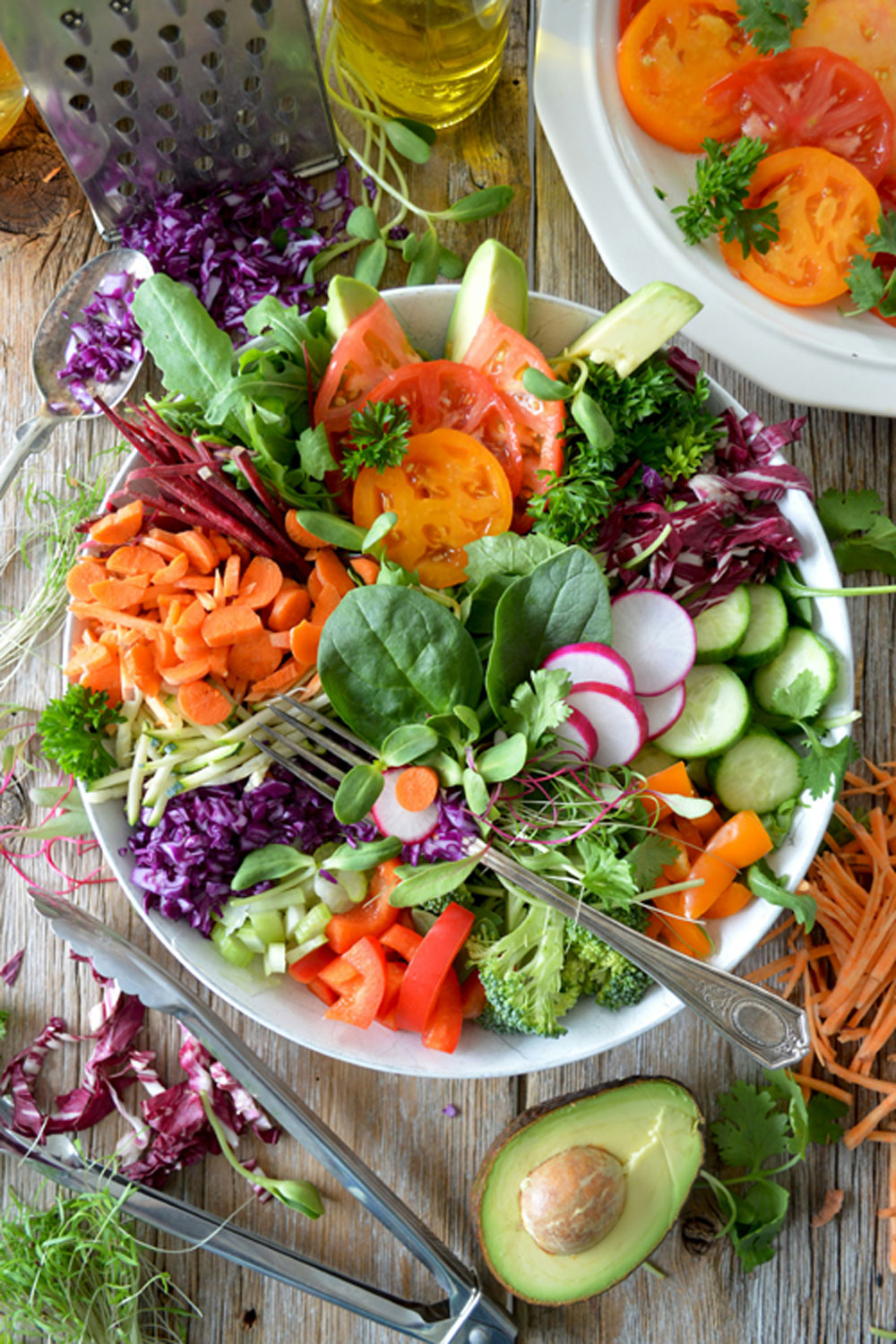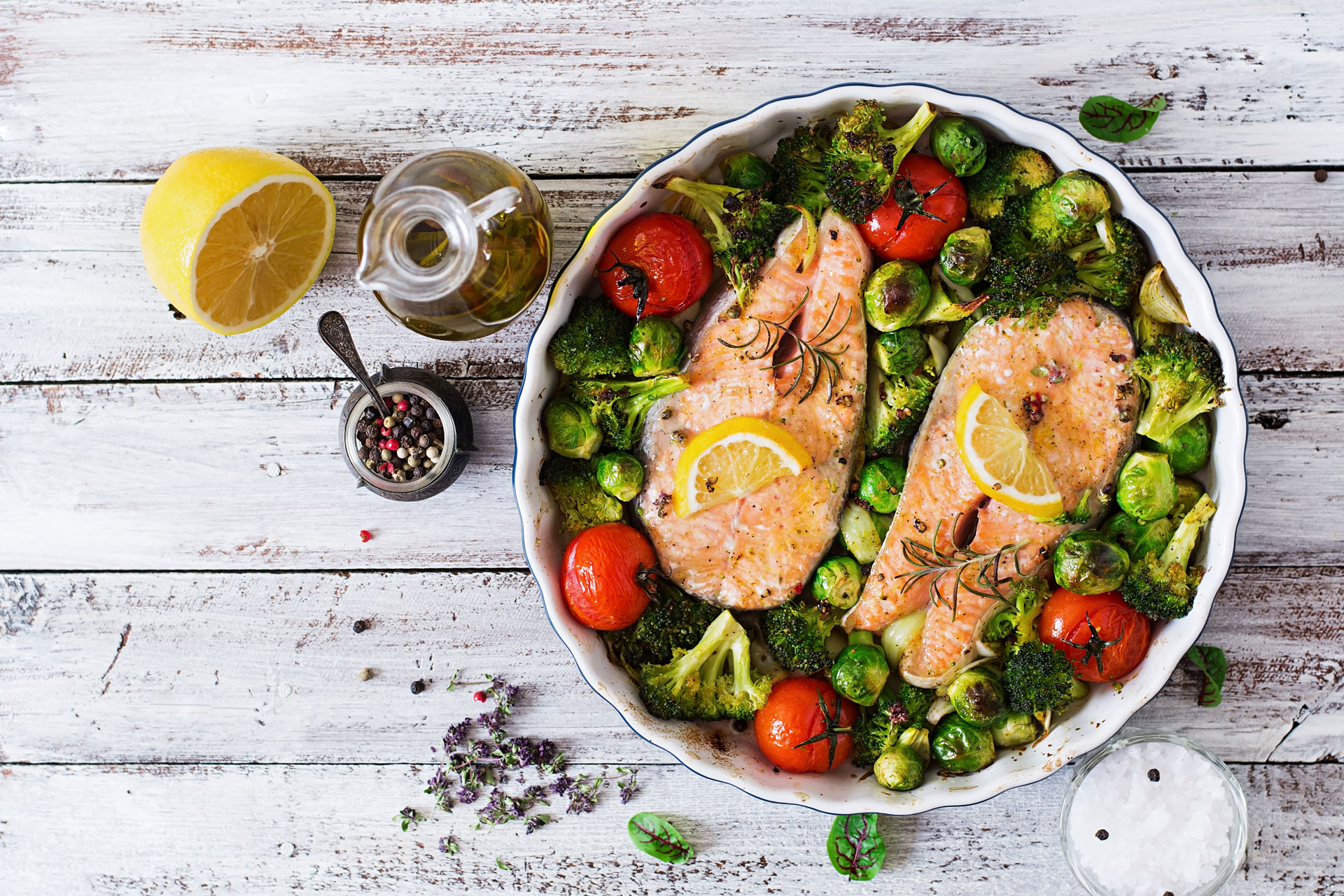
Would You Try The Human Being Diet?
By
7 months ago
This three-month eating plan has gone viral
From the Atlantic diet to the meat-only trend, it feels like every week there’s a new viral eating plan. The latest to hit the headlines is the Human Being Diet, a three-month programme created by nutritionist Petronella Ravenshear, which has been hailed for its transformative powers – from boosting energy to improving digestion and weight loss. But what does it actually involve, and is it safe?
The Human Being Diet, Explained
Who Created The Human Being Diet?
There’s a lot of talk around the Human Being Diet (known by devotees as HBD) right now, however Ravenshear first created the guidelines over six years ago. Being a nutritionist, she had spent years advising clients on how to eat well, but when she found herself struggling with weight gain during her ‘50s, she devised a personal plan focused around metabolic balance. This was a topic she’d studied in detail back in 2008, after being introduced to the late Dr. Wolf Funfack, an expert in the subject.
Ravenshear began recommending her own programme to clients, and word quickly spread about its effectiveness, with people reporting an average weight loss of five to 14 pounds in 16 days. Her Chelsea clinic soared in popularity, with lengthy waiting lists meaning she had to turn people away – so in 2018, she published her first book on the topic, The Human Being Diet, aiming to give people the tools to try the plan from home.
View this post on Instagram
During lockdown, Ravenshear began sharing information about her programme online via Instagram, and soon developed a big following. Now she has over 50k followers, alongside a loyal community of disciples, who share recipes and tips via the hashtag #thehumanbeingdiet (which has amassed over 14k posts).
What Is The Human Being Diet?
There are a few different elements to the HBD, but the ultimate aim is to ‘reestablish your body’s long-term balance’. It involves cutting out ultra-processed foods, instead focusing on whole foods – particularly vegetables and high-quality protein.
While all this sounds pretty doable, the HBD is not plain sailing. The three-month programme is split into four key phases, and the first is particularly challenging, with Ravenshear herself describing it as ‘pretty brutal’.
Known as The Reset, the first step is a radical detox which involves restricting your calorie intake to around 700 to 900 calories a day. For the first two days, you consume just vegetables in a bid to reset the gut, with no oil, dairy, protein or alcohol allowed. Then for the next 14 days (phase two), you can re-introduce pulses, fruit, nuts and some proteins, such as chicken, salmon, minced beef or tofu. The aim is to eat three meals a day, with five hour fasts between them. Strenuous exercise is forbidden during this period (things like walking, yoga and Pilates are allowed), as the aim is to help your parasympathetic nervous system – plus you’re not eating enough to fuel intense workouts.
Phase three is designed to last 10 weeks. During this period you can re-introduce oil, alongside a ‘treat meal’ once a week, which could involve sugar, dairy, alcohol or gluten. However, there are other rules to adopt, such as consuming breakfast within an hour of waking up, and keeping your calorie intake to around 1,200 calories per day. Followers are advised to stay in this phase until they are happy with their weight loss, or for a maximum of 10 weeks.
Phase four is described as the ‘forever phase’, with the hope that ‘healthy habits’ are now embedded into your life – Ravenshear says ‘it’s a case of [keeping] the principles that work for you’. Her book outlines the full programme in more detail.

Getty Images
What Are The Benefits?
Ravenshear argues that the Human Being Diet is not a fad, but designed to create long-lasting, positive dietary habits. ‘The majority of HBD followers are interested in healthy weight loss,’ she says. ‘But the weight loss occurs as a side effect of reduced inflammation, and rebalanced hormones and blood sugar. This is why the beneficial effects are so wide-ranging. They include improved energy, better sleep, glowing skin, improved digestion, and a resolution of pain.’
It’s worth noting that, while there’s plenty of anecdotal evidence surrounding the benefits, there are no dedicated scientific studies about the effects of the HBD. However, there is a lot of research about the importance of prioritising whole foods and reducing UPF intake.
Is It Safe?
Phase one of the Human Being Diet is designed to be done only once or twice a year, and it’s not recommended for under 18s or for those who are pregnant or breastfeeding. Generally, dieticians also advise against diets like this for people who have previously experienced eating disorders – and, indeed, some believe following the HBD could actually lead to disordered eating habits. Ultimately, the HBD is a very restrictive diet, and it’s always best to speak to a dietician or nutritionist before starting a drastic new eating programme.






